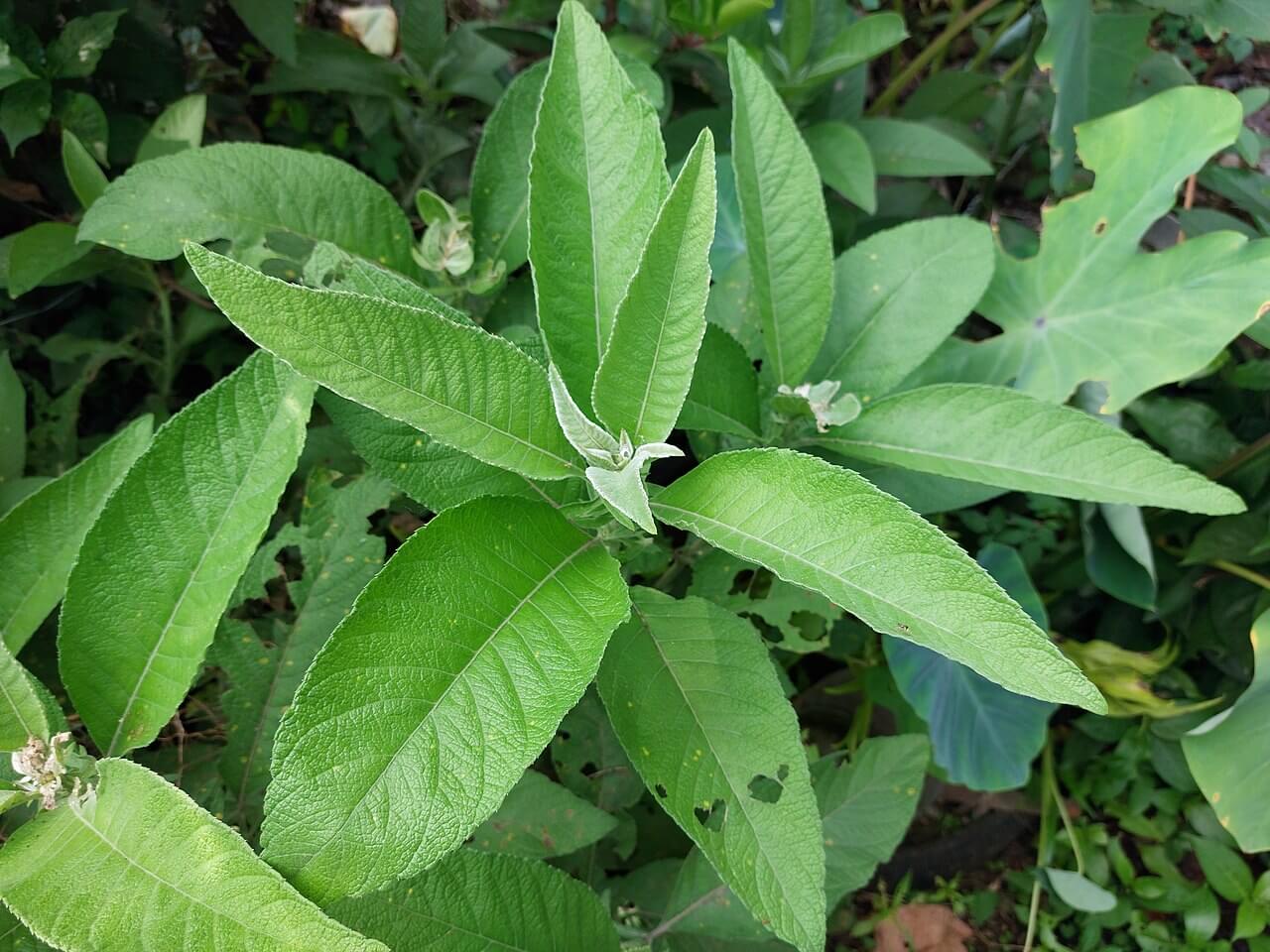
Lakad-bulan – Blumea balsamifera (Philippines). Wikimedia Commons. https://commons.wikimedia.org/wiki/File:Lakad-bulan – Blumea balsamifera (Philippines).jpg. CC BY 2.0.
Table of Contents
What Is Sambong?
Sambong (Blumea balsamifera) is a medicinal plant native to Southeast Asia, widely valued in traditional or natural folk healing systems. With centuries of use in treating various ailments, it has played a significant part in many forms of alternative medicine.
Today, its therapeutic potential is no longer confined to cultural practices—modern scientific studies have begun to validate many of its traditional uses. Sambong is particularly recognized for its health-promoting properties in supporting kidney function, aiding in the treatment of urinary tract conditions, and alleviating respiratory issues such as coughs and colds.
As both traditional and evidence-based approaches to wellness continue to merge, sambong stands out as a promising natural remedy within the field of alternative medicine.
Read further to discover the health benefits associated with sambong.
9 Sambong Health Benefits: Traditional
Sambong has been used for centuries in various traditional remedies, including:
1. Removes kidney stones
Sambong is known for its natural diuretic effect, which helps dissolve and flush out kidney stones.
2. Relieves Respiratory Infections
Its expectorant properties make it effective for relieving colds, coughs, and bronchitis.
3. Eases stomach pain and spasms
The leaves are used to ease abdominal discomfort and cramps.
4. Aids in wound healing
Juice from sambong leaves is applied topically to aid wound healing and prevent infection.
5. Relieves headaches
Poultices made from sambong leaves are placed on the forehead to relieve tension headaches.
6. Relieves rheumatism
Warm sambong compresses are applied to aching joints for relief from rheumatism.
7. Reduces fever
Pounded leaves and roots are used in poultices or sponge baths to reduce high fever.
8. Remedies diarrhea
Sambong tea serves as a natural remedy for diarrhea.
9. Relieves menstrual cramps
Women drink sambong tea to relieve menstrual pain.
5 Sambong Health Benefits: Modern Scientific Uses
Recent research supports many of the traditional claims, highlighting new therapeutic applications.
1. Natural diuretic
Sambong tea helps lower blood pressure by reducing water retention.
2. Protects kidneys
Endorsed by the Philippine National Kidney and Transplant Institute, sambong may delay the progression of kidney failure.
3. Anticancer properties
Studies suggest sambong extract may be effective against liver cancer (hepatocellular carcinoma) cells.
4. Antimicrobial Activity
Sambong contains antibacterial and antifungal compounds that combat various infections.
5. Antioxidant and liver-protective effects
Rich in antioxidants, sambong supports liver function and protects against oxidative stress.
How to Prepare and Use Sambong
1. Sambong Tea
- Boil 50 grams of fresh sambong leaves in 1 liter of water for 10 minutes.
- Drink 4 glasses a day while warm.
2. Poultice
- Pound fresh leaves and roots into a paste.
- Apply directly to affected skin areas.
3. Capsules and Tablets
- Available in standardized form from licensed herbal medicine suppliers.
Side Effects and Precautions
Sambong is generally safe when used appropriately, but caution is advised in the following cases:
- Allergic Reactions: Some individuals may develop itching or skin irritation.
- Stomach Irritation: May cause gastrointestinal discomfort.
- Low Blood Pressure: It may further reduce blood pressure levels.
- Medication Interactions: Potential interactions with anticoagulants and other diuretics.
- Pregnancy and Breastfeeding: Avoid unless prescribed by a healthcare provider.
Conclusion: Is Sambong Right for You?
Sambong (Blumea balsamifera) is a versatile and time-honored medicinal plant with a wide range of traditional and scientifically supported health benefits—from kidney stone prevention to antioxidant and antimicrobial effects. Its natural healing properties make it a valuable addition to holistic and alternative health practices.
However, like any herbal remedy, responsible use is essential. Always consult a qualified healthcare professional before using sambong, especially if you are pregnant, breastfeeding, taking prescription medications, or managing chronic health conditions. With proper guidance, sambong may offer a natural path to improved wellness.



